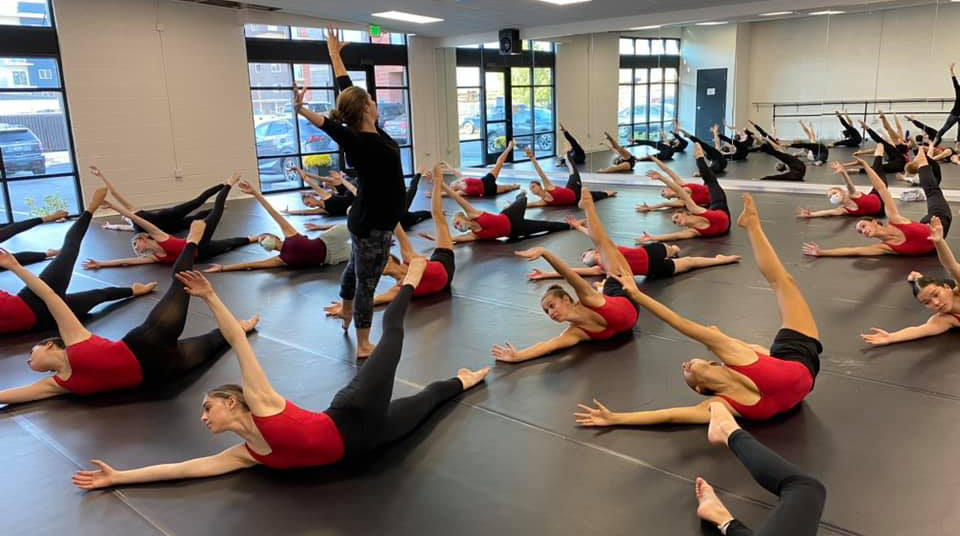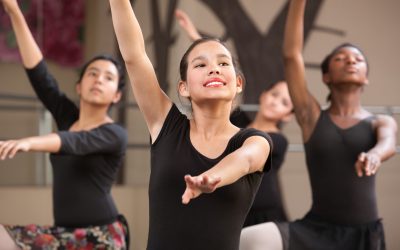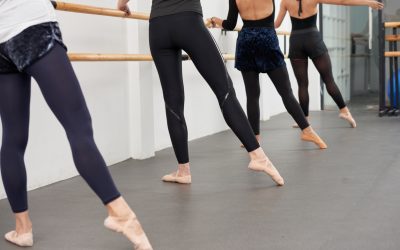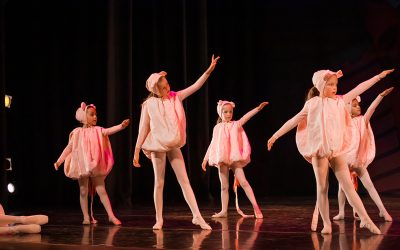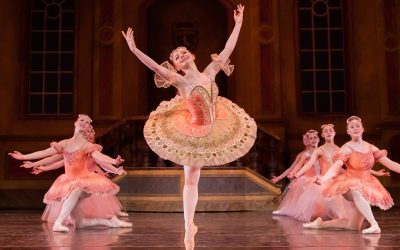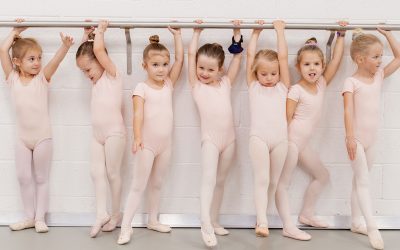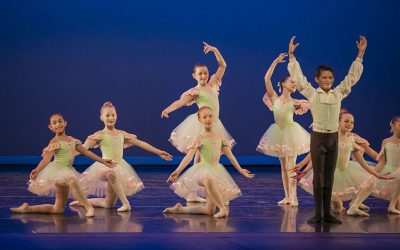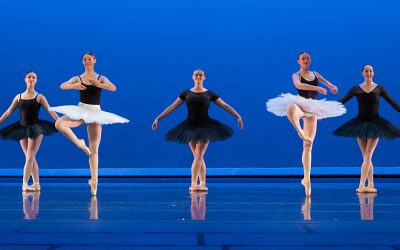A student’s ballet experience is contingent on the skills and techniques their ballet instructor passes on to them, as well as the knowledge, information, and attitude your child learns during ballet. The following provides important considerations for what to look for in a ballet instructor.
What to Look for in a Ballet Instructor
The best ballet instructors are not only professional and knowledgeable in their craft, but are also great teachers. On top of that, when you’re looking for a ballet instructor, you’ll also want one who offers the best experience and opportunities to build your ballet resume.
Below are the 9 top traits you should look for in a ballet instructor:
1. Professional Experience
One of the first things you should look for in a ballet instructor is professional ballet experience. This is true regardless of whether the teacher is for you or your child–a beginner or an advanced student.
There are many “dance lovers” who attain the capital to start a ballet studio. However, not all experience is equal, and a love of dance doesn’t necessarily translate into productive instruction.
Looking for a ballet instructor who has proven professional experience and success means your technique will be aligned with whatever future opportunities you or your child may be interested in. It means you decrease the risk of learning “bad” technique or habits that may stymie any future ballet pursuits.
2. Educational Background
Besides experience, you should also look for a ballet instructor with an educational background. You’ve probably experienced the phenomenon of the art teacher or history teacher who loves their craft–but has no idea how to teach it. The same is possible in ballet. A great ballet dancer may not necessarily be a good instructor.
While professional experience is most impressive when looking for a ballet instructor, it’s important to also look at educational background. Degrees in teaching pedagogy or ballet instruction are a good sign that your ballet instructor can produce an optimal learning experience.
3. Classical Ballet Technique
One of the wonderful things about ballet is that the technique is universal. Each position and movement is the same, no matter what country you are from. However, this also means movements aren’t up for interpretation. If you or your child plan on having a ballet tenure that extends past this one ballet class, you’ll want to make sure you’re being trained properly. This means making sure to look for a ballet instructor that is highly experienced and knowledgeable in classical ballet technique.
4. Experience Relevant to Your Ballet Goals
When you enroll in ballet classes or hire a ballet instructor, you’re not just learning technique; you’re also gaining the experience and knowledge. Having a ballet teacher who has proven success in (or above and beyond) achieving your goals for ballet makes it more likely you’ll be able to achieve those goals as well. In other words, you’re benefiting from the “been there, done that” experience offered by your ballet instructor.
This is especially true for those instructors who have performed in world-class ballet companies, have coached and choreographed award-winning ballers and ballerinas, and who have had experience dancing with your dream company or for your university of choice. By learning from your instructors’ experience, you’re able to skip some of the trial and error you’d otherwise face and have the chance to emulate their successes. It can also mean you have a better opportunity for networking than if you went with a less experienced teacher.
5. Conducive Personalities
When you’re looking for a ballet instructor, it’s important to find one whose personality meshes with yours—but with the following caveat: you want an instructor who is going to push you and help you to grow, not one who will make things easy and fun all the time.
Instead of looking for the dance teacher whom you “like” the most, look for the teacher who is able to help you stretch your ballet skills and techniques in the most effective way possible. This means a communication style that resonates with your own, a compatible combination of positive reinforcement and constructive criticism, and an attitude that helps motivate you to reach further.
6. Trust & Respect
The way you interact with your ballet instructor will have a big impact on whether you’re successful in your ballet goals. For instance, if you do not trust your instructor’s skills or technique, you may find yourself reluctant to try new movements or less enthusiastic about taking or applying their advice or guidance. This can quickly hinder your progress.
Instead, look for a ballet instructor whom you trust and respect. This will open you up to the important adjustments, motivation, and guidance that can help take your ballet skills to the next level.
7. Goals & Focus Aligned With Yours
There are a few different types of ballet instructors. One type is focused primarily on performances, choreography, and putting on a good show. Another is sweet and accepting, focusing on being liked and making sure each dancer is having a good time. Others may be patient and committed to technique, focusing on how to make you a better dancer, with performances being an outcome of this good instruction, not the primary end goal.
Depending on your goals for ballet—short-term performances, enjoyment, or long-term technique and success—you should look for a ballet instructor whose focus and goals align with yours.
8. Discipline
Regardless of your goals with dance, discipline is a big part of ballet. Ballet as an art form is committed to technique and discipline. Even if you’re just joining ballet for fun, you would be missing out if you didn’t benefit from the discipline and focus of the art.
This is true for young beginner students as well. Some of the best ballet lessons your child will learn are less engrained in technique and more about the discipline, hard work, and motivation that come with learning ballet.
9. Performance Style
When you’re searching for a ballet instructor, you’ll also want to get to know their performance style. For ballet students hoping to pursue a future career in ballet or college scholarships or ballet opportunities, your performance experience will have an impact on your resume.
Look for a ballet instructor whose performance schedule, demandingness, and professionalism fit your goals for ballet.
What Has Surprised You About Your Previous Ballet Instructors?
Have you ever been surprised by something you benefited from (or did not benefit from) with your previous ballet instructors? Something you experienced that you wouldn’t have thought to look for–or avoid? Share in the comments below!
About the Author

Jennie Creer-King
Owner & Artistic Director
Jennie Creer-King is the owner and artistic director of Central Utah Ballet Academy. She is an award-winning dancer, instructor, and choreographer. Among her awards include “Best School Award” by the Youth American Grand Prix, “Best of State” in Choreography and Youth Performing Group, and the Presidential Scholar’s Teacher Recognition Award. Jennie has a Bachelor's Degree from the University of Utah School of Dance with an emphasis in Ballet Performance and a Master's Degree from the University of Utah School of Dance emphasis in teaching pedagogy and choreography.
You may also be interested in...
5 Reasons You Should Take Adult Ballet Classes
As adults, it can be difficult to prioritize the things we love–especially when we have a family whose interests seem to trump our own. However, with self-care growing in the spotlight, the need to make time for our passions is being looked upon as less of a luxury...
FAQs About Central Utah Ballet’s Children’s Dance Programs
Central Utah Ballet offers ballet classes for children 3+. For toddler and preschool students ages 3-5, explore our pre-ballet classes. For students 6+, please take a look at our children’s ballet classes. Below are some frequently asked questions about our program....
About Adult Ballet Classes at Central Utah Ballet
Central Utah Ballet is proud to offer ballet dance classes for adults at our studio in Lehi, Utah. As dancers ourselves, we know that passion for ballet doesn’t diminish with age. Our ballet classes give adult dancers an opportunity to fuel their passion. What Adult...
What do Kids Learn in Toddler Ballet Classes?
Three or four years old may seem early to start a child in ballet, but there are many new skills a child will learn in these classes. 5 Things Children Learn in Toddler Ballet Classes There are many reasons parents enroll their toddlers in toddler ballet classes....
Can You Take Private Ballet Lessons?
There are many reasons dancers may be interested in private ballet lessons. They may be aspiring dancers who seek to improve their skills and technique. They may be preparing for an opportunity such as a solo, audition, or scholarship opportunity. They may even be...
What Kind of Dance Lessons are Best for a 3-Year-Old?
From hip-hop, tap or creative movement, the options for starting your child in dance classes are endless. If the goal is to give them a few hours to get out their jitters, then perhaps what you sign them up for doesn’t matter. However, if the dream is for your cherub...
Should I Put My Son in Ballet?
If you have a son interested in ballet, you might have wondered if you should enroll him in ballet lessons. Though supporting our children in their passions should be intuitive, it does not mean that parents don’t worry about the implications of certain choices. Will...
What is a Trainee in Ballet?
If you are an aspiring ballet dancer, you may have heard other dancers talking about ballet trainee programs. But what, exactly, is a trainee in ballet and what should you look for in trainee programs? We answer these questions below. What is a Trainee in Ballet? A...
At What Age Can Toddlers Start Ballet?
What Age Can Toddlers Start Ballet? Toddlers can start ballet as early as 3 years old. However, most ballet studios will require that the child is potty trained. These early toddler classes will typically be shorter than ballet classes for older children, usually...

